sobhhï Discusses Branding, Moods, Inclusion, & New Single "facts up / الحين" [Q&A]
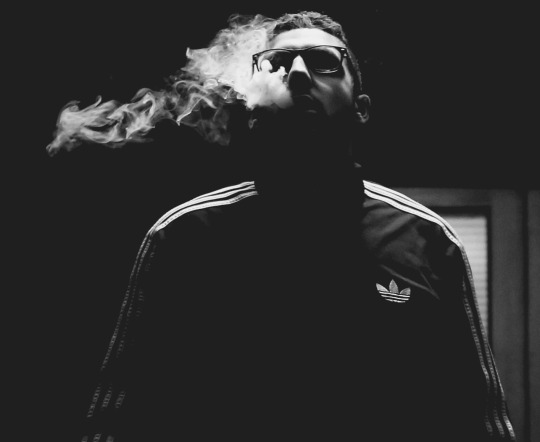
"I’m just trying to knock out all these handshakes and you know, trying to be more social this year," says Sobhhï in between a laugh as he walked the streets of New York with me on the other end of the phone. Miscommunication for our chat didn't alter his demeanor, but in fact broke the ice, calling it a "lucky coincidence" on my timing before he continued his travels to Dubai.
The alternative R&B artist simply known as sobhhï has purposely stepped out of the limelight during the duration of his career and embraced a shadowed persona. The pressure to disclose his identity to a constant growing fan base became more apparent with his musical success. "Like my youngest followers are the ones that are most curious, so definitely I do feel that pressure. But I always get reconfirmation too that making the focus not so about me has helped make it more about the music so, I’m pretty happy with the fact," explained sobhhï.
On his latest single, "facts up / الحين," taken off his forthcoming EP, BLACK I, set to release on Feb. 19, sobhhï brings a multitude of intangible moods on a sultry production. Once again blending trapsoul with R&B, the track is an appetizing fill for colder nights. "facts up" maintains a sensual bedroom soul soundscape which softens a tinge of erotica from sobhhï's dreamy vocals. His articulation from sensuality of lust towards a mental aspect intertwines with Arabic, English, and the undertone of distance.
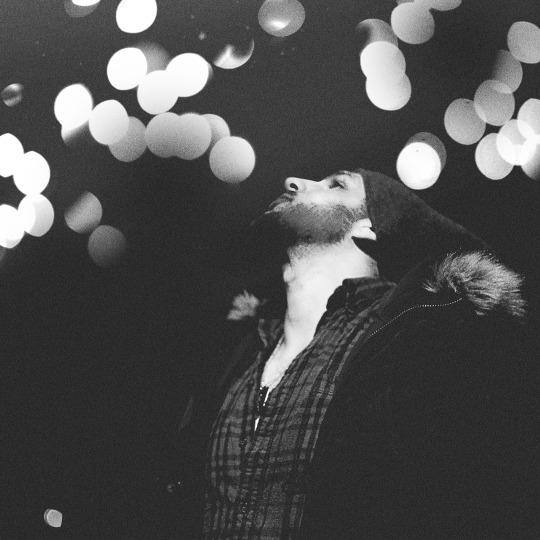
In the same vein, sobhhï's attention to detail on his continued color-palette themed EPs stretches beyond his music, but towards his draped branding. Recently teaming up with like-minded individuals, sobhhï's latest endeavor, NUIT SANS FIN (night without end), acts as a record label, luxury fashion, and design house focusing on a nightlife style. Heavily influenced from Marty Neumeier's "The Brand Gap" and "Zag," sobhhï's marketing mindset is prevalent on NSF. In order to stray away from the "standard cookie cutter" presentation among a saturation of similar artists, sobhhï states that when people zigs, he zags.
The conversation naturally leads from the ideals of NSF, moods, and the real reason why he spoke Arabic on "facts up." A lighter side of sobhhï is shown throughout our conversation, always stemming from inclusion, offering a better insight of sobhhï's thought process. What follows is a condensed version of our conversation.
OTW: Your brand is polished and it kind of goes into something that I noticed that you recently did in NY, it’s NSF - which celebrates, if I may quote a “nocturnal lifestyle” - so I wanted more information on that and how that meshes with your overall brand and music.
Sobhhï: I took a look at my catalogue, and I realized there was a little bit of lack of cohesion of what kind of message I'm sending, and I looked around [to] more successful artists. And to me, the music industry's success is more really about money; it's about do you have a hit single that’s gonna recoup that cost of your advance and all the monthly costs, but for me the success criteria is if fans or people who are listening feel like they’re apart of something that’s just not music that they hit play, but kind of a world they live in. So, I look at things like you know Drake’s OVO and [The] Weeknd’s XO, Wiz Khalifa's Taylor Gang, and A$AP Rocky's A$AP brand, and I realized those brands are much bigger than the music. They allow people to feel more included. They allow people to change their social media handle to feel like they’re part of a family. It’s gonna be a design house at the end of the day, which means that it can range from anything from photography to architecture, but the point is it's a project that allows me to make the feeling that people get from my music to go beyond just the music itself and make it more inclusive. And since then there’s been people changing their handles on social media, feeling they're more included in this family, and I hope I can make it bigger than me. And then one day when I’m not here anymore, it will still be here. And again, NSF means endless night, or night without end, and it kinda describes my music and my whole circle’s sort of mindset or lifestyle. It also describes a lot of the millennial culture. You know, binging on Netflix [laughs], sleeping till noon.
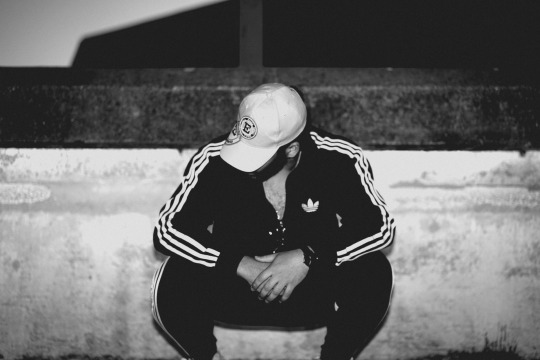
OTW: So, are you of the millennial culture?
Sobhhï: That’s a good question. [laughs] I would say - are you saying by age or by mentality?
OTW: Either or - it’s subjective.
Sobhhï: Okay, I’ll say mentality wise. You know like I said, everyone zigs or zags, so if I ever feel like there is a culture of some kind I try not to be so, included. I try to find a way to like stand out a little bit.
OTW: On Essentials, there’s a couple tracks that I’ve noticed that are probably going to be on your upcoming BLACK I EP, right?
Sobhhï: Yes.
OTW: Did you kind of see this as testing the waters in a sense to what would stick, before you would put out, or I guess, polish the EP?
Sobhhï: Um, no. The Essentials are actually the curation of the very best songs from all of the EPs, so you can think of it starting with the concept of colors. I name my EPs after colors because I feel like there’s many shades of R&B and hip-hop now, it’s not just one sound. So, instead of having an album that sort of has these waves and people take the songs they like out of it, I decided it would be better to just package things in small, very, very, concentrated pieces of bodies of work that have a theme. And I also noticed there’s a shift in the music industry, it seems to be diverging, and we’re getting really, really, long albums now for people who are shamefully trying to jack up their stream numbers, and we’re also getting a movement towards just singles from more independent artists because people don’t have the patience to listen to full projects. So, I thought like 3-4 song EPs would be the perfect size that would allow me to go deeper into a topic or a mood, than just one song, and allow me to experiment with transitions, but not long enough to be considered having a dropout rate by the time you’re done.
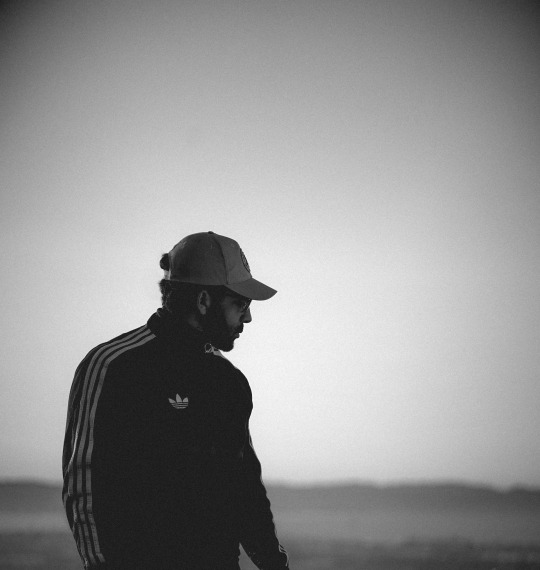
OTW: What I want to touch on is your immersion of Arabic. Even certain references in titles, whether it be a capital and the actual language as well; I think that’s very beautiful. What was the idea to immerse Arabic because you really don’t hear that a lot. I love Arabic indie rock but I don’t hear it in R&B. [laughs]
Sobhhï: Yeah, thank you for appreciating that. I know some people don’t. For me, the main motive for that is hip-hop started as a story about being African-American in America and certain forms of oppression that those people faced, and then it’s something that grew and was kind of an empowering sound and empowering genre. And as the world became more like immigrant population, hip-hop has kinda gone to the world stage from where it started. And now, it’s just… I look around, and I see there’s a lot of representation of hip-hop in certain places and then there’s certain places where there’s people who really like hip-hop but it’s not represented for them there. So, the whole point for Arabic for me is I just want more people to feel included in the movement. I look at a lot of my fans. I have a lot of Turkish fans, I have a lot of Arabic fans, I have a lot of fans from France for example, and it’s like hopefully one by one I can find ways to represent my supporters in my music over time. And Arabic was just the first thing I did because I happen to speak it [laughs] but you know, that’s kinda the concept with it. I want people to listen to it and be like, "Oh wow this isn’t just something like happening thousands of miles away that I can’t be apart of anymore," it’s like world culture. It’s world pop culture.
OTW: You mention a lot about inclusion, whether it be the side project of the record label, as well as immersing cultures and languages together - is that just an overall theme that's intentional?
Sobhhï: Yeah, I mean it’s not like I have an overt agenda. Just like the way I grew up, my parents were both immigrants and they came here to get educated. My dad came for an accounting PhD and then he stayed, and then my mom came for an MBA, and they didn’t really like each other very much. You know when your parents don’t like each other, it’s hard to have family friends; it’s hard to even keep good ties with your family. I would say my younger brother and I grew up very lonely and on holidays and special occasions there really wasn’t anyone around. And we also moved around a lot too, so these things culminated I guess. For me it’s like family, like building a family, is a very important thing. And the same way I’m against racism, and against sexism, and every kinda -ism, I’m also against the concept that family has to be people you’re related to because that’s just a game of chance, like who you end up being related to doesn’t necessarily mean they’re good people.
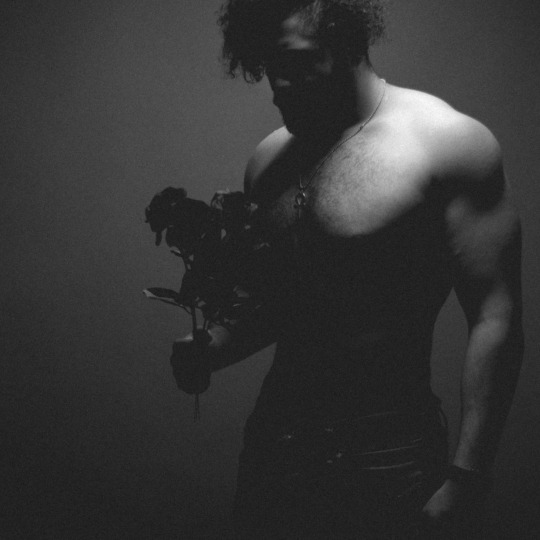
OTW: Let’s talk about your single "facts up" - what was the little push behind it? Because that one sounds like something I would ask a distant relationship, like, "Hey, what's going on?"
Sobhhï: Yeah, so it’s hard for me tangibly describe these things because you know, my process is very [laughs] loose. I kind of just step into a studio and these things just come out of my head and then you know I go back and edit them on paper, and then it’s done. So, it’s hard for me to walk through a very perfect story for you about "there’s a girl" [laughs], but there’s definitely a distance component to this. I’m hopping between all these cities and it’s hard, for my friends and people I always care about, [who] aren’t always in the same place. Also, originally I wasn’t planning on speaking Arabic in this song, but there was this… I was talking to this girl and she said, "I want to hear you speak in Arabic." [laughs]
OTW: [laughs]
Sobhhï: So I was like... Okay [laughs].
OTW: Was it that easy?
Sobhhï: Yeah. I didn’t think it would turn out that good. [laughs] I mean, I happen to be in the studio at the time and you know nivo, who is my close collaborator, he just finished a session and we were going to get food and usually right before we leave to do something there’s like a period of 20 minutes where like he’s checking his phone or we’re packing stuff up, so I took that 20 minutes to be like, “Okay let me get this out the way” [laughs]…so this is one of the songs where I let nivo hear it in the car and he’s like, "Yo, dude you gotta get on this vibe" and I was like, "Really?"

OTW: That’s hilarious. Love how things fall into place. Did you ever get to show that girl?
Sobhhï: Yeah, she knows about it [laughs].
OTW: Is there anything else you want to add, talk about?
Sobhhi: I will say BLACK I is just the first project and color dropping this year, there will also be Red III, Purple I, White I, and White II, if I have the stamina and the luck so look out for that, and they will all explore different moods and different feelings and different themes.

![Pop Star Seanna Pereira Has Entered the Conversation [Q&A]](https://s3-us-west-2.amazonaws.com/onestowatch-v2/a003_c005_251211_l6.mxf.12_33_49_20._still002-_i_p_h_o_n_e-1771968603.jpg)
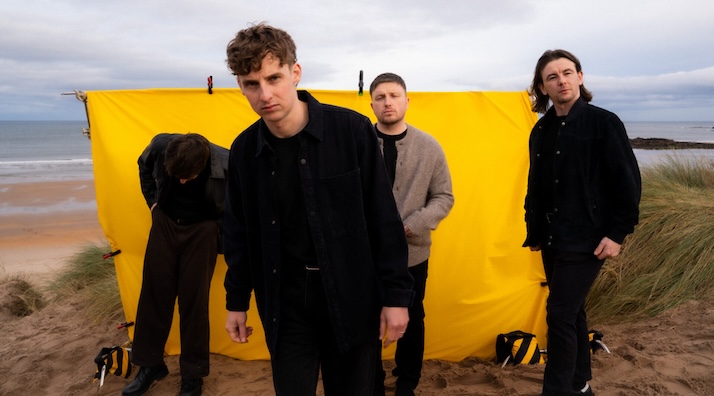
![Bella Litsa’s “Drasticism” Is Mysterious, Inevitable and Undoubtedly Your Next Obsession [Q&A]](https://s3-us-west-2.amazonaws.com/onestowatch-v2/4_i8_a1538@sandrajamphoto-1771529337.jpg)